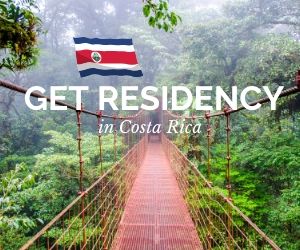There have been numerous posts here excoriating Costa Rica for switching diplomatic recognition to China. This article by the Brookings Institute sheds some light on the process and the reasoning behind it. Taiwan does not come out of it with clean hands. A word of caution, the author Kevin Casas-Zamora was a Vice-President in the Aries administration. That being said it does NOT necessarily mean that the report is factually inaccurate.
Quote:
'Brookings Institute:
Brookings on the Costa Rica Decision to Switch Recognition to the PRC
Domestic political benefits. Why Costa Rica insisted on being part of that club for so long is a complicated story with some chapters that are less than pretty. To put it shortly: as in the case of other countries, Costa Rica’s relationship with Taiwan was fraught with conflicts of interest and outright corruption.
The list of examples is long and it’s pointless to repeat it here.
It includes the legendary “fact finding†trip to Taiwan that was routinely offered to politicians, journalists, trade union leaders, etc., in which they were given super-VIP treatment and lavished with, literally, thousands of dollars in gifts and shopping vouchers.
It was also the hundreds of thousands of dollars contributed by the Taiwanese government to the election campaigns of the main political parties in Costa Rica, something that was well known to political insiders in the country but that broke into the open in the wake of the 2002 election.
Then, a journalistic investigation showed that, defying the electoral law that banned foreign contributions, President Abel Pacheco’s campaign had received at least $500,000 from two Taiwanese companies through a bank account in Panama.
Given the well established use by Taipei of slush funds to buy influence in the developing world, it was widely presumed that the Taiwanese government was behind the donations.Most disturbing of all was the creation of a Taiwan-sponsored charity, the “Chinese-Costa Rican Associationâ€, which for years made donations to top up the salaries of civil servants at the Ministry of Foreign Affairs in Costa Rica.[19]
The relationship with Taiwan had become a corrupting cancer at the heart of Costa Rica’s foreign policy, a tumor that had to be extirpated. President Arias’ decision to approach the PRC government and hit the reset button with China, was partly motivated by the hope that the relationship with the PRC would be a far more transparent and institutional affair than was the case with Taiwan.
These long-term gains in terms of political transparency were, of course, scant consolation for the many domestic actors that stood to lose out in the short run. The latter took the matter to the public opinion, presenting President Arias’ decision as a betrayal of human rights, and as the ultimate slap in the face of the generous Taiwanese government. That’s why negotiating a hefty assistance package from the PRC, one which included, amongst other things, the continuation of each and every project hitherto funded by Taiwan, was essential for President Arias to contain the public opinion fallout.
For Costa Rica, says author Kevin Casas-Zamora, the switch has been very positive.
Casas-Zamora also notes that the Costa Rican experience of a positive result from the switch is unlikely to be replicated elsewhere in Latin America despite the large sums flowing in from the PRC, because Costa Rica has a small high tech trade with China that no other Central American nation has. Taiwan also responded to the loss of Costa Rica by ramping up diplomacy in the area.
Another factor is that in the long term China's low wage manufacturing threatens industries across Central America even as commodity exporters make a bundle on relations with China. Textiles, the region's biggest industry, can be made even more cheaply in China. Hence outcomes for local businesses are mixed, meaning that the business communities in those nations is not always pulling for deeper engagement with China.
A Jamestown Brief piece last year summarized: Given the increasing weight of the Chinese economy in the global system overall, all of Taiwan’s allies in the Western Hemisphere are under continually building pressures to formalize their budding ties with Beijing. This makes the fact that there has been no additional movement in Central America toward recognizing Beijing all the more intriguing.
At this juncture, the loss of even one more Central American ally would represent a damaging reversal for Taiwan that could further cripple Taiwan’s claim to sovereignty. The Costa Rica example demonstrates, however, that China’s regional strategy has shifted toward providing more succulent carrots (rather than punitive sticks), and there is little question that Taiwan is desperately trying to prevent additional defections.
China appears to have bet that developing an intensive, multi-faceted relationship with Costa Rica may have a powerful demonstrative effect on other countries in the region—assuming that Costa Rica is viewed as reaping substantial benefits. Guatemalan President Alvaro Colom may be too absorbed in his country’s contentious politics to risk a China diversion, but other governments in El Salvador and Honduras are certainly eyeing Beijing, even as they play host to President Ma of Taiwan.
The spring election of Mauricio Funes of the left-wing FMLN as El Salvador’s new president has prompted an especially frantic wave of outreach from Taiwan, including an impromptu post-election visit by the Taiwanese foreign minister, in an effort to keep another Central American country from falling into China’s grasp. Since the election of Daniel Ortega in November 2006, Nicaraguan officials have been careful to assure Taipei that cooperation between the two countries will continue.
China has attempted to put pressure on tiny Belize by working through the Caribbean Community, a regional organization of mainly English-speaking governments who have mostly eschewed Taiwan in favor of China. Recently elected Panamanian president Ricardo Martinelli vowed to review his country’s relations with China and Taiwan during the election campaign, but his instincts as a successful businessman may pull him toward China.
Chinese leaders are eagerly interested in expanding their success with Costa Rica to other parts of Central America, but in the short term they are not going to force the issue. Rather, China correctly views Costa Rica’s 2007 conversion as a major victory that they have time to savor and deepen before conducting their outreach to other countries in the region with renewed intensity.
China’s carefully calibrated patience toward Central America helps to explain why even President Ma’s upcoming visit to the region has not caused much of a stir in Beijing. When it comes to the battle for diplomatic recognition in Central America, China feels confident that time is on its side.
How much longer can Taiwan continue to keep a strong presence in Latin America?
edited to insert the word NOT which was inadvertently left out which changed the meaning of the sentence.
_________________

Pura Vida

Only Irish coffee provides in a single glass all four
essential food groups:
alcohol, caffeine, sugar and fat.
Alex Levine











